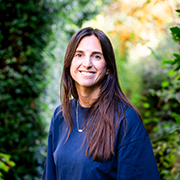Perspectives of family caregivers of people with chronic life-limiting conditions on their roles in caregiving
Background
Family caregivers are often the main providers of end-of-life care. Expressed as hours or days spent on end-of-life care for a person with a life-threatening illness, the contribution of a family caregiver is often more substantial than that of a formal care provider. In the future, the role of family caregivers in end-of-life care is likely to become even more prominent given that the number of people reaching (very) old age and dying from chronic diseases is rising and the resources in terms of professional health care services are limited. Policymakers are therefore striving towards the integration of care in the community in order to lighten the load for professional care. To achieve this, societies will have to make optimal use of family caregivers’ abilities which can be done by further engaging family caregivers in patients’ care. We apply the hierarchical model developed by Sallnow and Paul to conceptualize the various roles a family caregiver may fulfill. These roles are placed upon a spectrum of engagement whereby higher levels of engagement are associated with increased quality of care, health and wellbeing. Up until now, virtually no attention has been paid to the precise role of family caregivers in end-of-life care, the extent and content of care they deliver and whether and how they collaborate with formal care services and care providers. This knowledge is, however, essential for achieving a good integration of family care and professional end-of-life care, adequate support for family caregivers and thereby a stronger integration of end-of-life care in the community.
Aim
To better understand and describe the experiences and roles of family caregivers of people with chronic life-limiting conditions.
Method
This project uses a mixed-methods approach. The first study uses qualitative methods to gain a better understanding of the perspectives of family caregivers on their experiences and roles as caregivers. We will organize focus groups with family caregivers to discover how they experience caregiving and the collaboration with professional caregivers, which roles they assume and how well they are prepared and supported to do so. The second study is quantitative and aims to describe caregivers’ experiences and roles based on insights gained during the qualitative study. To do this, we will develop and validate a questionnaire which will be sent, together with a consent form, to a sample of 3000 family caregivers of patients who have passed away in the previous six months.
Project group
Maarten Vermorgen: researcher
Dr. Aline De Vleminck: supervisor and co-promoter
Prof. dr. Joachim Cohen: promoter
Prof. dr. Luc Deliens: member
Prof. dr. Chantal Van Audenhove: promoter
Dr. Nele Spuytte: co-promoter

